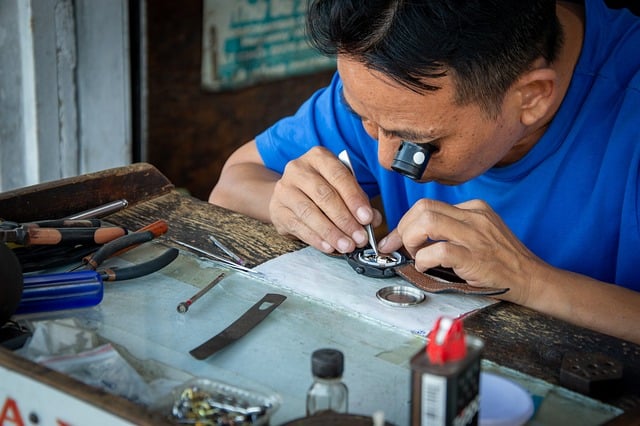Upgrading your home's insulation is crucial for improving energy efficiency and slashing heating and cooling costs. Optimal insulation materials like fiberglass, spray foam, or cellulose can improve your home's ability to retain heat in winter and resist it in summer, making your living space more comfortable and lessening the strain on your HVAC system. An energy audit is instrumental in identifying areas such as attics, basements, walls, and windows/doors that are contributing to energy loss or gain, guiding you on where to enhance insulation. It's recommended to consult with experts who can tailor insulation solutions to your home's specific needs and climate. Additionally, air sealing is essential for maintaining a consistent temperature throughout your home, reducing the need for frequent HVAC repairs by minimizing energy use. This comprehensive approach to energy efficiency not only saves on utility bills but also promotes a more sustainable living environment.
Furthermore, investing in high-efficiency HVAC systems can lead to substantial energy savings and a smaller environmental footprint. These modern systems feature advancements like variable speed compressors and smart thermostats, which adapt to real-time conditions for optimal performance. This adaptation results in less energy consumption during operation, leading to lower utility expenses and extended system lifespans due to reduced wear and tear. Homeowners can experience significant financial savings over time and may benefit from tax incentives for adopting energy-efficient technologies. Integrating these high-efficiency systems into your property enhances comfort while promoting environmentally responsible energy practices. Regular maintenance and timely repairs, informed by professional advice, are key to maintaining the efficiency of your HVAC system.
exploring energy efficiency at home can significantly reduce your carbon footprint and lower utility bills. This article delves into transformative upgrades and system improvements that enhance your living space’s energy performance. From optimizing insulation to harnessing solar power, learn how to make your home more sustainable with high-efficiency HVAC systems, strategic window replacements, LED lighting conversions, smart thermostats, and more. Discover the benefits of efficient water heaters, appliance retrofitting, insulated ductwork, and sustainable roofing choices. Additionally, explore maintenance best practices for your HVAC system to maintain energy efficiency, along with incentives that make these upgrades cost-effective. Unlock the potential for a greener, more energy-efficient home today.
- Optimizing Home Insulation for Energy Efficiency
- The Role of High-Efficiency HVAC Systems in Energy Savings
Optimizing Home Insulation for Energy Efficiency

When considering energy-efficient upgrades for your home, optimizing home insulation stands out as a pivotal step in enhancing energy efficiency and reducing heating and cooling costs. Properly installed insulation acts as a barrier against heat transfer, keeping your home warm in the winter and cool in the summer. This not only improves comfort but also significantly cuts down on the strain placed upon your HVAC system, leading to less frequent and costly HVAC repair needs. The effectiveness of your current insulation can be assessed through an energy audit, which identifies where heat may be lost or gained. Common areas for improvement include the attic, basement, walls, and around windows and doors. By addressing these areas with appropriate insulation materials like fiberglass, spray foam, or cellulose, you can achieve a more thermally resilient living environment. It’s advisable to consult with professionals who specialize in energy-efficient upgrades to determine the best types of insulation for your home’s specific needs and climate conditions. Additionally, sealing any gaps or cracks where air can leak in or out is crucial to complement your insulation efforts. This comprehensive approach ensures that your home maintains a consistent temperature with less energy expenditure, directly contributing to lower utility bills and a more sustainable living space.
The Role of High-Efficiency HVAC Systems in Energy Savings

High-efficiency HVAC systems play a pivotal role in energy savings, reducing both costs and environmental impact for homeowners and businesses alike. The energy consumption of conventional HVAC units can be significant, with outdated models wasting substantial amounts of energy through inefficient operation. By contrast, high-efficiency HVAC systems are engineered to optimize performance, utilizing advanced technologies such as variable speed compressors and smart thermostats that adapt to real-time conditions. These improvements translate to less work required for heating or cooling, leading to lower energy consumption and reduced HVAC repair frequency due to less wear and tear on components. Homeowners who invest in these systems can expect notable savings on their utility bills while also contributing to a greener planet by minimizing their carbon footprint. Moreover, the initial investment in high-efficiency HVAC technology is often offset by the long-term energy savings and potential tax incentives for energy-efficient upgrades. It’s a smart move for any property looking to enhance comfort while being mindful of energy management.
In conclusion, upgrading your home’s insulation and investing in high-efficiency HVAC systems can significantly enhance energy efficiency and reduce utility costs. Homeowners looking for reliable HVAC repair services should consider these improvements as both a cost-effective solution and a step towards sustainability. By adopting these practices, you not only contribute to environmental conservation but also enjoy a more comfortable living space. It’s a wise investment that yields tangible benefits over time, making it a prudent choice for any household aiming to improve their energy efficiency.
